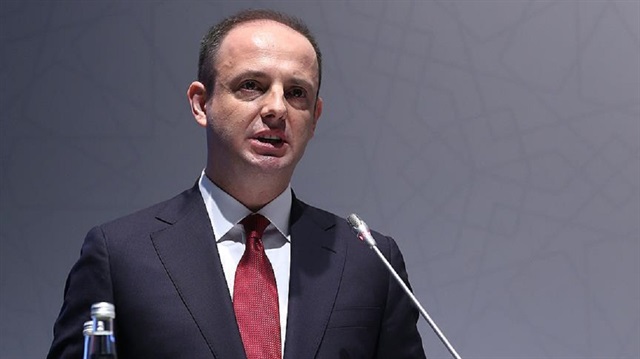
Fluctuations in the Turkish lira to not make 'durable' impact on the economy, Central Bank Governor Murat Çetinkaya says
Turkey's economic activity has been recovering in the last quarter of 2016, while fluctuations in the Turkish lira will not make a "durable" impact on the economy, Central Bank Governor Murat Çetinkaya said Tuesday.
Speaking at a press conference on the bank's 2017 monetary and exchange-rate policy, Çetinkaya said the impact of Turkish lira's losses of over 12 percent in value against the U.S. dollar in November on the country's inflation, which was 7 percent year-on-year, had been limited.
He announced that Turkey's Central Bank would hold its year-end inflation forecast at 7.5 percent, citing a favorable outlook for food prices and a moderate domestic demand despite foreign exchange volatility as reasons.
"The bank will continue to support financial stability while aiming to keep inflation close to the target," he added.
About support for the Turkish lira, Cetinkaya said: "We will continue to support the local currency as the medium of exchange in economic activities."
He said the use of Turkish lira in foreign trade had risen to 6 percent of the total trade from 1 percent in early 2000.
He also said the Central Bank had no nominal target for the foreign exchange rate.
"However, sometimes, there are fluctuations in the markets. If these fluctuations have serious and permanent impacts over the essentials of the economy and specifically price stability, the Central Bank naturally would not be indifferent to these developments," he added.
On Sunday, President Recep Tayyip Erdoğan said Turkey had taken steps to carry out its foreign trade in its national currency.
"If we buy something from them [foreign countries], we will do that in their currency; if they buy something from us, they will do it in our currency," Erdoğan had said, adding Turkey will "play its own game" in the economic arena against "all games" played against it.
On Friday, the president called on Turkish citizens to convert their foreign exchange savings into Turkish lira and gold to help boost the value of the local currency.
Hello, the comments you share on our site are a valuable resource for other users. Please respect other users and different opinions. Do not use rude, offensive, derogatory, or discriminatory language.
The floor is all yours.










